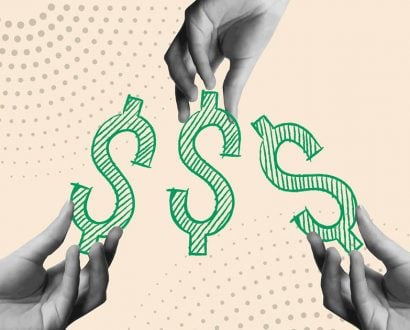A tidy bonus is a great way to be recognised for a job well done and if you’re like most, chances are you’ll be dreaming about ways to make the most of the funds before they even arrive in the bank account. But, with salary raises not being what they once were, or barely keeping up with inflation, it is wise to consider how to make the best use of the bonus.
Before that trip to Greece happens, or the latest car you’ve been dreaming of graces the garage, it may be time to stop and think. Chances are you’ve frittered away bonuses in the past, and promised yourself you won’t do it again. Feeling like you didn’t do well with the funds is no way to reward yourself for a great year’s work.
Still, it’s nice to be able to have some funds to spend as a recompense so work out a percentage of the bonus (maybe up to 20%) or a dollar amount that you’re happy to blow on a weekend away, a new watch or jewellery, spa treatments, a night out, new clothes or gifts for loved ones.
Identifying your financial priorities depends where you are in life and your family situation.
Chances are, your bonus will be taxed like regular income so you may not know exactly how much will land in your account. And before it even gets to you, you might want to consider the option of salary sacrificing some of the funds into your superannuation savings retirement plan. Just watch the numbers though. If you’re already on a healthy remuneration plan, the Super Guarantee Contributions by your employer may put you close to the annual concessional cap of $30,000 or $35,000 (depending on your age and figures correct at time of going to print although this may reduce to $25,000.) A top up into your retirement savings however, is often a good long-term plan.
Making after-tax contributions is also a worthy idea if you have no immediate use for the funds and don’t want to wind up with a big screen TV or a pair of Jimmy Choos instead.
Once the money is in the account, it’s time to consider its best use, and if you’ve accumulated some debt, this is a great place to start. Bringing down debt with the highest rate of interest that you are unable to claim as a tax deduction, such as personal loans and credit cards can save thousands in interest. Often called ‘bad debt’ for a reason, it takes a load off to keep these as close to zero as possible. Then, cancel or at least reduce the limits available on the facility if you’re likely to let things get out of hand again.
Many advisers recommend having an ‘emergency fund’, although the jury it out on exactly how much that should be. And these days, instead of having $10,000 or $50,000 sitting in a cash account, it’s probably better in an offset against your personal mortgage, saving non-deductible interest, but being accessible if it’s ever needed in a hurry. You won’t be paying tax on any interest earned, and likely, you’ll save more in interest as your mortgage rate is higher than what’s available in high-yield cash accounts at present.
But then, if you’ve managed to take care of yourself and the ‘bad debt’ you may have other debt as well such as the mortgage on your personal home. This can also be paid down.
Do you need to put aside for your children’s education? Has gifting to a favourite charity always been something you’d like to do? Do a bit of research on the ones that appeal to you and make sure of how much of the funds go to where they’re needed, rather than on administrative purposes.
It may also be time to review your savings goals. Has starting or topping up your portfolio of managed funds or shares been on your mind? Is an investment property, or a few, part of the long-term plan?
Looking ahead to future large expenses is also worthwhile. Are the refrigerator, car or washing machine likely to need replacement in the coming year? Are there medical or dental expenses that need to be set aside for? Large irregular expenses can occur when you least expect it so having some funds aside for this purpose doesn’t hurt. Again, the funds can stay in an offset against the mortgage, further reducing interest payable.
Ensure that you see that the purpose of the bonus is to put you in a better financial position than you were before.







